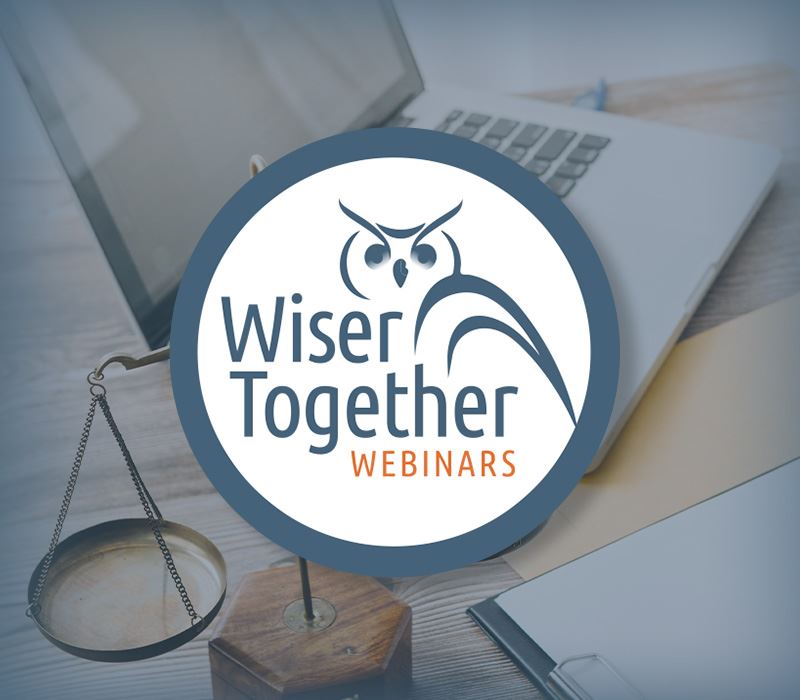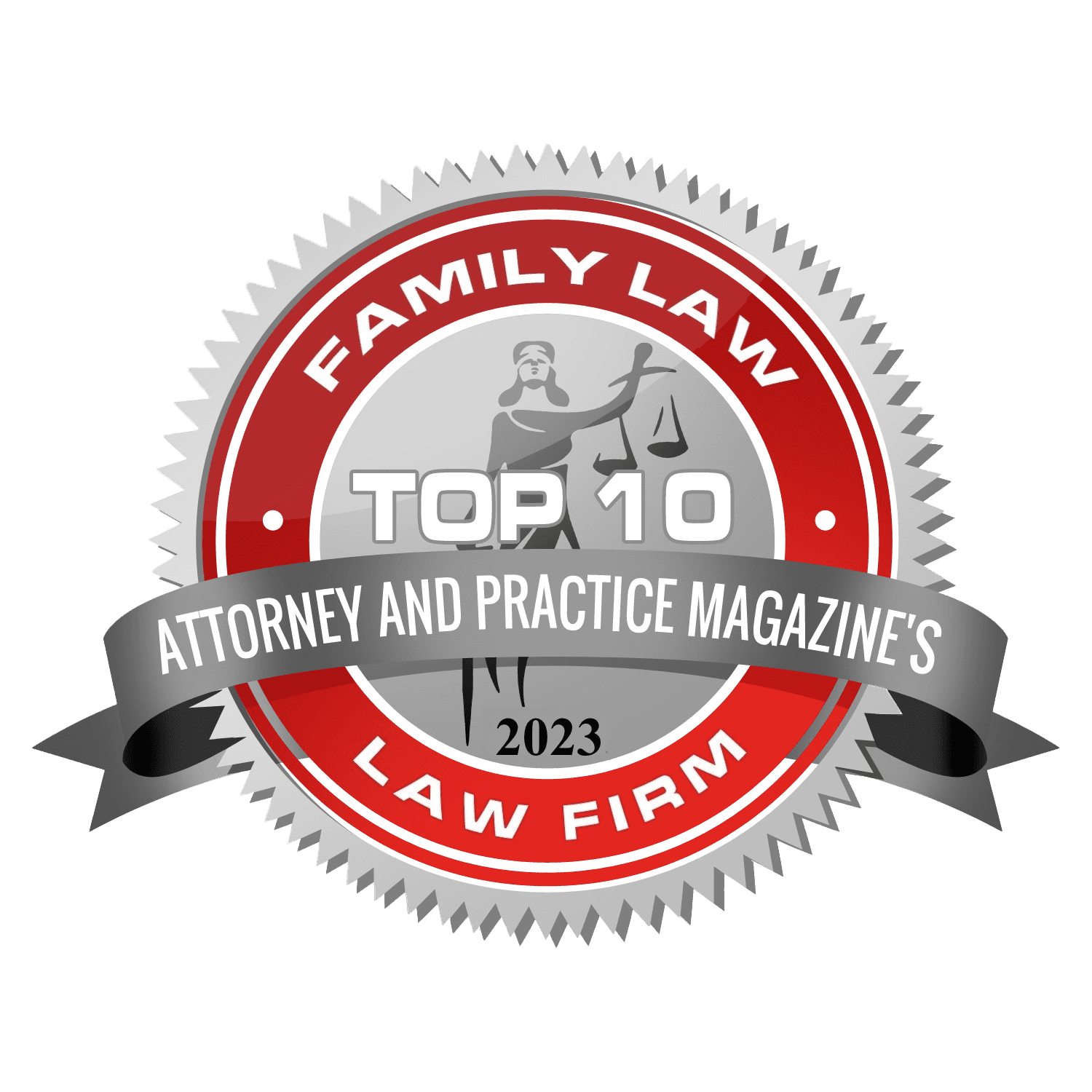

Denver Estate Planning Lawyer
Personalized Support as You Plan for Your Future
Estate planning for an uncertain future can be confusing and intimidating. For some, it may feel uncomfortable or seem unimportant. No matter your age, the size of your estate, or your family’s circumstances, creating or updating an estate plan is a practical way to establish your legacy, protect your wishes, and support those you care about. The Harris Law Firm guides you every step of the way.
Our estate planning lawyers serve individuals and families across Colorado with a range of estate planning options. Our attorneys work personally with clients and make the estate planning process clear and approachable. As your partners, our Colorado estate planning attorneys help you efficiently reach your goals and prepare for the future.
Call (303) 622-5502 or complete an online form to get started with our estate planning lawyers in Denver.
Estate Planning in Colorado
Estate planning in Colorado requires a solid understanding of both state and local laws. Colorado residents benefit from relatively straightforward probate filing compared to other states, but thorough planning helps your loved ones avoid unnecessary legal hurdles and delays. If your property is in Denver County or elsewhere along the Front Range, a local estate planning attorney can factor in local court processes, tax requirements, and specific titling rules for properties in the area.
What is an Estate Plan?
In Colorado, an estate plan is a set of legal documents and arrangements that manage and distribute an individual's assets and affairs upon death or incapacity. Estate planning lets people control how their assets will be distributed, who will manage their affairs if they become unable to do so, and who will make medical decisions for them. Good planning can help you minimize taxes, streamline probate, and protect assets for generations to come.
Here are some common components of an estate plan in Colorado:
- Last Will and Testament (Will): A legal document outlining how assets are distributed after death. It may also name guardians for children and address funeral preferences.
- Trusts: Trusts place assets under the care of a trustee for beneficiaries. Types include revocable living trusts, irrevocable trusts, and special needs trusts, which help manage assets in life and after death, avoid probate, or achieve unique goals like charitable giving.
- Durable Power of Attorney (POA): A document appointing someone to manage financial and legal matters if the individual is incapacitated.
- Healthcare Power of Attorney (Medical POA): This document appoints someone to make medical decisions should the individual become unable to do so.
- Living Will (Advance Directive): A document stating a person's wishes for end-of-life medical care, like whether to receive life-sustaining treatment if they are terminally ill or permanently unconscious.
- Beneficiary Designations: Naming individuals for retirement accounts, life insurance, or other assets helps those assets bypass probate and go directly to your chosen recipients.
- Letter of Intent: This non-binding document can instruct executors or guardians about your wishes for distributing personal items or sentimental property.
- Guardianship Designations: Parents can indicate their preferences for legal guardians if they are unable to care for their children.
- Digital Estate Planning: Instructions regarding digital assets, such as online accounts, social media, or cryptocurrencies, after death or incapacity.
- Business Succession Planning: If you own a business, planning can include how to transfer ownership and management to successors.
Every Colorado estate plan looks different because each person's property, family needs, and long-term wishes vary. Denver families may have specific concerns about real estate or small business succession, along with healthcare directives. A local estate planning lawyer can suggest tools and documents tailored to your current life stage, family structure, and Colorado law, so your plan supports your needs now and can adapt later.
Our Estate Planning Process in Denver
When you meet with The Harris Law Firm, our team listens closely to your goals, learns about your family, and reviews your specific assets. We hold confidential meetings to determine what matters to you, whether you want to provide for minor children, protect your home, or prepare for health care considerations. Then, we outline every legal tool that fits your needs.
Our Denver attorneys provide options, explain the pros and cons of each approach, and help you make informed decisions. Once you approve the plan, we prepare documents and review each step to make sure your wishes are clear, enforceable, and flexible for life’s changes. Because our offices are located across the Front Range, you can schedule meetings where it’s most convenient, and we encourage ongoing check-ins to update your plan as laws or personal circumstances shift.
What Are the Benefits of an Estate Plan?
Holding an estate plan offers many advantages, providing peace of mind and making sure your wishes are followed throughout your life and beyond.
These are some key benefits of an estate plan:
- Asset Distribution: An estate plan directs distribution of your assets based on your preferences after you pass away. If you don’t have a will or trust, state intestacy laws control who receives your property, which might not match your wishes.
- Avoiding Probate: Strategic estate planning can transfer assets outside of probate or reduce probate’s scope, saving your loved ones time and expenses. Probate can be slow and costly, but solid planning can reduce delays and streamline transfers to beneficiaries.
- Minimizing Taxes: Estate planning can use strategies to lower estate, gift, or other taxes that could decrease your estate’s value. Creating trusts, gifting assets, or using tax exemptions can lighten the tax load for your family.
- Protecting Beneficiaries: With tools like trusts, you can shield assets from creditors, lawsuits, divorce settlements, and poor spending habits. This keeps assets available for your chosen goals, like education, medical needs, or financial security.
- Providing for Minor Children: Your plan can name guardians for minor children if you die or become incapacitated. You may also set up trusts to manage assets for your children until they reach the age or milestones you pick.
- Healthcare and Financial Decisions: With health care powers of attorney and durable financial powers of attorney, you appoint trusted people to make medical or financial choices if you can’t do so yourself. This ensures your wishes are carried out and protects your loved ones from tough decisions with little guidance.
- Maintaining Privacy: Unlike probate, which exposes much of your financial life to public view, estate planning tools can keep asset transfers private. Trusts and some other structures keep family affairs out of public record, reducing disputes.
- Business Continuity: Business owners can use estate planning to ensure ownership and management pass smoothly to successors, maintaining continuity and preventing major disruptions if something happens to them.
Colorado has its own probate rules and property transfer processes, and residency often shapes who inherits. An estate attorney familiar with Denver can recommend strategies for blended families, multiple properties, or gifts to charity. Many Denver residents have retirement accounts, investment properties, or unique local business interests that require individualized estate planning solutions. Working with a local estate lawyer helps you address Colorado-specific challenges and create clear plans for your family.
By having a complete estate plan, you gain control over your legacy, protect your family, and ensure your choices guide the future. Meeting with an estate planning attorney can help you sort through the details of Colorado law and craft a plan tailored to your situation.
Understanding Costs & Fees for Estate Planning in Denver
Many people want to know what they can expect to pay for estate planning services in the Denver area. Costs typically depend on the complexity of your plan and the documents you need. A simple will generally costs less than a comprehensive estate plan that includes trusts, health care directives, and business succession planning.
At The Harris Law Firm, we follow transparent and fair billing practices. You’ll learn about costs before making any decisions, and we do not charge hidden fees or for routine administrative work. We make it easy for clients to ask about costs, timelines, or how different choices affect the total, so you always know where you stand. Our goal is to support your peace of mind as you invest in your family’s secure future.
Call (303) 622-5502 or contact us online to schedule a consultation with our estate planning attorneys in Denver.
Preparing for What Matters Most
Free Download: Estate Planning Checklist
Introducing our Estate Planning Checklist, a practical and easy-to-follow resource designed to help you prepare for the estate planning process with confidence.
This checklist walks you through the key personal, financial, and legal information your attorney will need, helping you organize important details, identify next steps, and ensure your wishes are clearly documented. Whether you’re creating a plan for the first time or updating an existing one, this guide helps simplify a process that can often feel overwhelming.
Take the First Step Toward Peace of Mind:
Download Your Free Estate Planning Checklist Today.


HEAR IT FROM OUR CLIENTS
WE'VE HELPED COUNTLESS FAMILIES AND INDIVIDUALS OBTAIN THE RESULTS THEY DESERVE
-
“We had a successful conclusion to all of our work this morning. The court commented on the fine work that had been done using a combination of the collaborative process and our independent efforts. I would like to thank the team for your patience with us through what has been a very difficult process for us both.”- Mark
-
“I AM THRILLED and relieved and so ready to move forward. Thank you, everyone, for your hard work on behalf of my sweet daughter. God bless you!!”- Jeni
-
“Thank you both for everything you have done to help me have my daughter in my life. My family and I deeply appreciate it.”- Paul
-
“Dear Angie and Janet, I want to thank you for your incredible help and advice last week as I prepared for my emergency restricted parenting case for protection of my two children.”- Marisa D.
-
“Dan Droege of the Harris Law firm handled a "grandparent right"s for us. From the initial intact through final resolution, Dan was thorough, professional, empathetic, and sensitive to our needs. He did not spend time wasting time and driving up the bill. He proceeded in a way that brought the "other side" to the table to obtain resolution thus avoiding a costly court battle. I highly recommend the Harris Law Firm in general and Attorney Droege in particular.”- James
-
“I feel like choosing to work with The Harris Law Firm was the best possible decision I could have made for my representation in a difficult matter. I worked with Eric and was very impressed. He was always honest with me about what to expect and it was very spot on with the outcome. He also didn’t waste my time or my finances with excessive communication but was available for me and kept me informed about the status of my case. I also worked with the paralegal Julie and she was always very kind and efficient.”- Melanie
-
“Jennifer and her paralegal Cat were outstanding. They communicated with me in a timely, respectful, and professional manner. Larry worked well with me by being flexible when I asked if I could wait to pay the bill since I knew we were finishing up my case. Jennifer is talented. I'm very pleased with her attention to detail and willingness to engage when I expressed that I didn't understand something. These folks are highly recommended in my book - I will certainly pass on this firm's name and my positive experience.”- I.R.
-
“My first consultation with the Harris Law Firm (Jennie Wray) was an absolute delight. Jennie Wray helped me better understand my legal situation and patiently explained the various directions I could consider. Her extensive legal background offered insights into past legal precedent & court (judge) rulings. At the conclusion of the call she clearly explained the options for hiring her to handle my case - both the retainer fee & hourly charge. The Harris Law Firm is very transparent with their legal & billing services. I would choose them for any legal issue.”- Jimmy
-
“I had an extremely complicated legal situation to maneuver and a very difficult, combative ex-spouse. Jennifer Workman was my attorney at Harris, and worked miracles in terms of handling my case and moving towards a settlement that has provided true freedom and peace of mind for me. She is the best of the best! I am confident that she could handle ANY other case, as mine was truly terrible and I had zero hope of settlement. It was a long road to get to this point, but I’m happy to say that I’m on the other side now. You will be too!”- Erica
Estate Planning Services After a Divorce
With decades serving Colorado families, The Harris Law Firm knows divorce can redefine your finances, priorities, and goals.
After separating your assets from a former spouse, it makes sense to create or update your estate plan. Divorce often changes your financial outlook and raises new goals for yourself and your children. This moment also gives you an opportunity to plan for your future with confidence.
Divorce in Colorado often triggers the need to update beneficiaries, guardianship choices, and powers of attorney to reflect new relationships. Denver courts may ask for proof that you've revised estate plans removing a former spouse when needed. Updating a will or trust often requires looking at all other financial records, including account designations and digital access. An estate attorney can help you coordinate changes across your documents, accounts, and digital life to make sure everything matches your updated wishes.
Whether you’re looking to create a will, establish a trust, or plan for important events in the future, The Harris Law Firm is happy to discuss how we can help. Our estate planning attorneys serve clients statewide from offices in Denver, Englewood, Evergreen, Boulder, and Colorado Springs and are available to arrange a private consultation via phone or videoconferencing.


An Emphasis on Personal Service
Every situation is unique, so we take the time to get to know our clients in Colorado, the legacy they want to create, and their goals. Our Denver estate planning lawyers explain complex issues in easy-to-understand terms, discuss your options, and help you see how these choices fit your needs. By prioritizing personal service, our clients take an active role and can make informed decisions at every step.
Ongoing counsel helps our team understand the details of your estate and design ways to minimize taxes, protect assets from creditors, and help beneficiaries avoid challenging probate and other disputes.
Our team includes attorneys with backgrounds in estate planning, tax, consumer law, elder law, and divorce, so The Harris Law Firm can offer a wide perspective as we guide you through your estate planning journey in Colorado.
We see the value in ongoing communication. Our team encourages you to revisit your estate plan after major life events such as buying property around Denver, receiving an inheritance, or moving within Colorado. We foster a setting where you feel comfortable asking questions every step of the way. Our bilingual staff serves English and Spanish-speaking families throughout the Denver area and beyond.
Our Denver estate planning lawyers believe the best estate plans are easy to understand, adapt, and maintain over time. We believe your estate plan should be a living document that supports your family in every stage of life.
Estate planning is not just about incapacity or end-of-life wishes. It is also about building a legacy and creating a better future for those you love.
Common Estate Planning Mistakes in Colorado
People in Denver and across Colorado often make estate planning mistakes that lead to problems for loved ones. Failing to update documents after major life changes, like marriage, divorce, or moving in or out of Colorado, is a common pitfall. Overlooking contingent beneficiaries on financial accounts or ignoring digital assets such as online accounts or cryptocurrencies can also create frustration for heirs.
Poor recordkeeping can cause significant confusion during probate. Some people title property in ways that force it through probate or trigger tax issues they didn’t expect. Working with an experienced estate attorney can help you spot and avoid these issues, protect your interests, and provide your family with clarity and comfort through every stage.
Call (303) 622-5502 or contact us online to schedule a consultation with our estate planning attorneys in Denver.

The Harris Law Firm Difference
WE CARE ABOUT OUR CLIENTS, OUR TEAM, & OUR COMMUNITY
Since 1993, our commitment has been to provide the best possible client outcomes through compassionate and effective representation. If you are facing a divorce or related family law matter, estate planning or tax issue, please contact our helpful, compassionate, and understanding attorneys to request a legal evaluation or you can submit your information to ask a legal question. We look forward to helping you!
-
Our Community
We’re proud to be part of Colorado’s legal and civic landscape and we view service as a responsibility, not a slogan. Through pro bono work, philanthropy, and volunteer efforts, we contribute to the strength, resilience, and well-being of the communities we call home.
-
Our Team
We’ve built a culture of collaboration, mutual respect, and shared success. Our attorneys and staff are empowered to grow, supported in their work, and united by a common goal: helping clients move forward with clarity and confidence. Behind every case is a team that brings insight, integrity, and care to everything they do.
-
Our Clients
We work with people facing some of life’s most consequential decisions, and we take that responsibility seriously. From day one, we provide thoughtful counsel, clear communication, and a legal strategy tailored to the person, not just the problem. Every case is different, but our commitment to client-centered service never wavers.

Frequently Asked Questions About Estate Planning
What Documents Are Essential in an Estate Plan?
An essential estate plan for Colorado residents typically includes several key documents. A Last Will & Testament allows you to decide asset distribution and name guardians for children. Many plans include trusts for more control, which may help families avoid probate delays. Durable powers of attorney let you name an agent who can make financial or legal choices if you cannot. Health care powers of attorney let you select someone to manage medical decisions, and a living will lets you outline wishes for end-of-life care. Review and update these documents with every major life event so your plan always matches your needs.
How Often Should I Review My Estate Plan?
Regular review of your estate plan is vital to keep it aligned with your goals and life changes. We recommend reviewing your plan every three to five years or after major milestones, like marriage, divorce, the birth of a child, or a significant financial change. Laws can also change, which may impact your plan’s effectiveness and tax consequences. Meeting with an estate planning attorney ensures you adapt and strengthen your plan as things evolve.
How Can Estate Planning Protect My Business?
Business owners use estate planning to ensure clear business transfers, reduce disruptions, and support employees. Buy-sell agreements and succession planning create a path for ownership changes if you become incapacitated or pass away. Trusts may help you shield business assets from probate or outside claims, help define who leads the business next, and protect your financial legacy.
Why Is It Important to Consider Digital Assets in Estate Planning?
Digital assets are part of your legacy. These may include email, cloud storage, cryptocurrency, social media profiles, or online businesses. Failing to plan for these can cause loss or complications and delay transfers to loved ones. A comprehensive estate plan includes directions for accessing, managing, and distributing digital assets. Identifying accounts and securing access can prevent future problems and help your family carry out your wishes.















